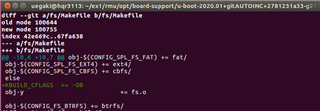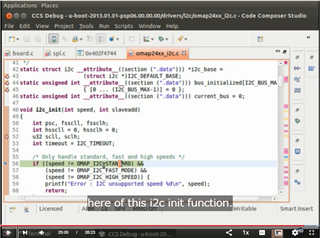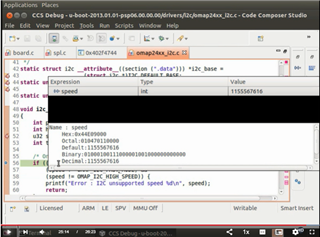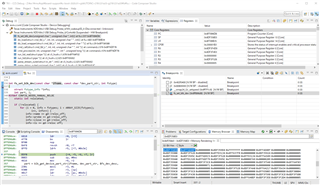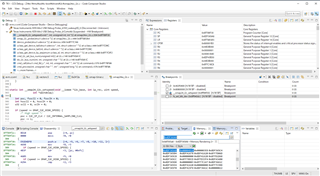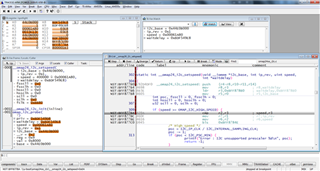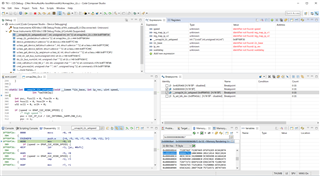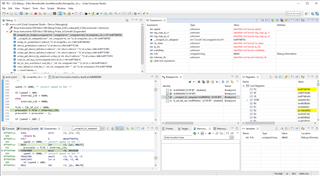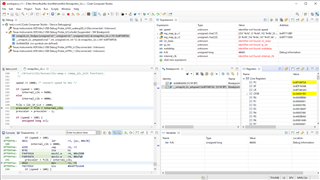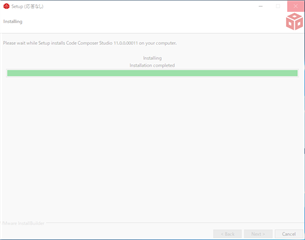I checked this page training.ti.com/linux-board-porting-series-module-7-debugging-u-boot-jtag-ccs .
Then I understood how to debug u-boot by CCS.
I succeeded in stopping at hardware breakpoint.
But I met a problem that local variable can't be watched.
As shown in Fig.1, I tried to click "fs_type" to watch this value, but value was not displayed and "Variables" window in the upper right corner displayed nothing in spite of "fs_type" was the first argument of fs_set_blk_dev() .
Could you please teach me how to watch local variables ?
As a supplementary explanation, optimization of fs.c was removed to debug this file as shown in Fig.2 .
On the other hand, I confirmed to watch local variables when SPL debugging (not u-boot) .
Fig.1
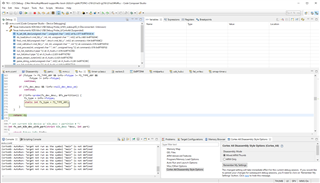
Fig.2
